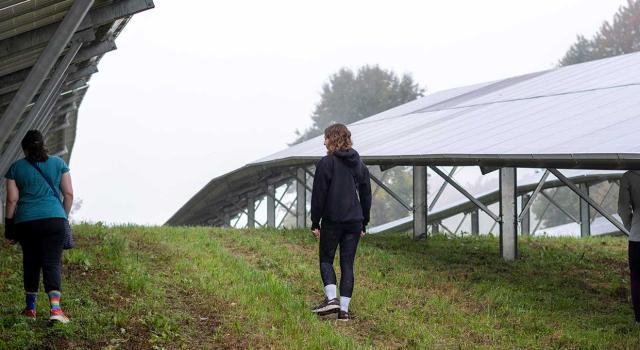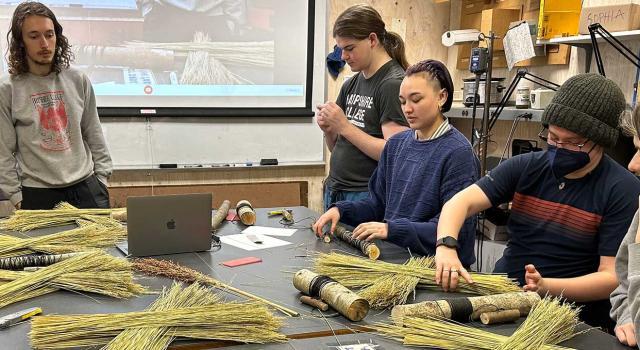Hampshire's Library Checks Out Vegetable Seeds, Just Like Books

 Parents who might worry about college students—Are they eating well? Are they spending enough time in the library?—can file this under "good ideas": At Hampshire College, students can visit the library, riffle through an old wooden card catalog, and check out . . . vegetables?
Parents who might worry about college students—Are they eating well? Are they spending enough time in the library?—can file this under "good ideas": At Hampshire College, students can visit the library, riffle through an old wooden card catalog, and check out . . . vegetables?
Actually, they check out vegetable seeds. Packets of seeds are checked out just like books. Students can plant them in a community garden on campus or grow tomatoes on their windowsill. The library offers gardening resources to help guide the process. Once the plants produce fruits or flowers, students harvest new seeds and, after drying, return those to the library.
Seed lending libraries are beginning to pop up in communities around the country, but Hampshire's may be the first within an academic library on a college campus. It is a collaborative project, initiated by a student and maintained by the library's staff.
As part of her Division III (senior) project, May graduate Hannah Haskell 08F researched and catalogued 250 varieties of plants, presenting the library with binders of information and two large boxes of seeds. The boxes contained quite a variety: beets, broccoli, and beans; carrots and cabbage; two varieties of eggplant; leafy greens, pumpkins, radishes, and flowers, to name just a few.
The collection includes heirlooms and hybrids, all locally adapted, "at the very least," said Thea Atwood, interdisciplinary science librarian. There is no penalty for the poor gardener who fails to return seeds. "They're forgiven. It's a learning experience," Atwood said.
The seed lending library serves as a resource for those who want to learn about sustainable gardening, particularly the practice of seed saving. At a college with many students living in dorms where they can prepare their own meals, it provides access to organic, non-genetically engineered seeds, free of charge.
Seed libraries can help keep local plant varieties alive and growing. Over generations, seeds continue to adapt to local growing conditions and become hardier, with vegetables that can be even tastier, said Atwood.
Hampshire's seed lending library is a small project, but it connects to bigger goals and commitments. The college is engaged in what it calls a Healthy Food Transition, using food as a means to experiment with new models for solving global resource challenges as well as emphasizing the benefits of nutritious eating. The college has a large farm that serves as a learning lab for professors and students working across academic disciplines. A seed lending library on campus "just seemed like a perfect fit," Atwood said.
The Hampshire library is undergoing change itself, with its energetic new head librarian, Jennifer King, and a cross-campus committee examining what the library learning commons of the future should be, including plans for technological and space renovations. In the midst of those large discussions, a small seed lending library in a vintage card catalog—"It was empty and it was right there," said Atwood—points to the important role student-initiated projects and creativity will always play.

Photo, top right: Hampshire College librarian Jennifer King, Sarah Jayne Klucken 11F, interdisciplinary science librarian Thea Atwood



